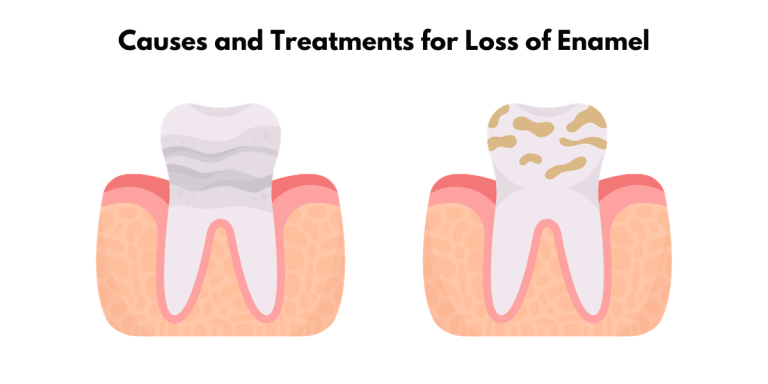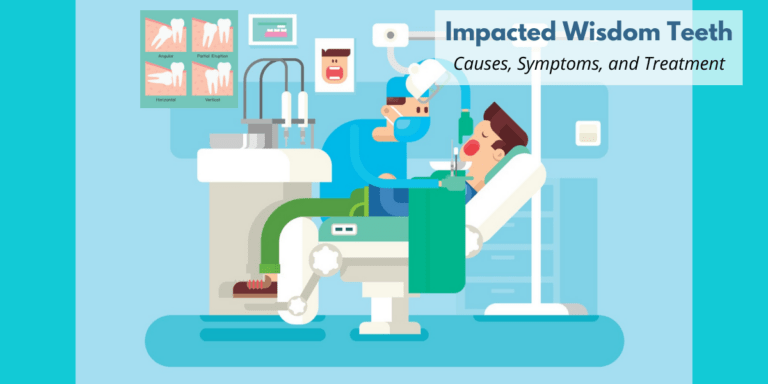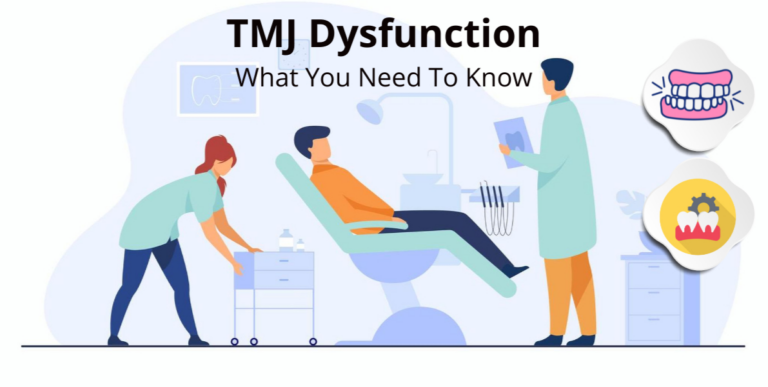Different Types of Dental Specialists and How They Can Help You
What is a Dental Specialists?
Dental specialists are oral care providers who acquire specialized education after attending dental school. These experts are akin to medical doctors who received further training to become a dental specialists in their field – for example, brain surgeons or a pediatrician.
To attain a healthy and dazzling smile, sometimes you will need a bit more dental care than basic cleaning, standard whitening, and dental checkups. Due to specific situations and dental ailments that may be prevented, genetic, or incidental, that may influence your general health condition, visiting dental specialists to address the issue may be necessary.
The different types of dental care providers that look after our gums, teeth, and mouth are the following:
General Dental Care Practitioner
A general dentist is the primary dental care provider. They are responsible for various duties, including analysis and diagnosis of dental problems, providing primary treatment, care, and regulation of one’s comprehensive dental health. They work with patients of all ages and can provide various services.
Apart from providing preventive education, general dental care practitioners are also responsible for the following procedures: Non-metal fillings, root canals, periodontal care (gums), bridges, and crowns.
Periodontist
A periodontist is a dental specialist who diagnoses, cares for, and subdues different types of gum diseases (soft tissues in your mouth). They have extensive training in diagnosing and treating gingivitis, periodontitis, and other diseases that affect the soft tissues in your mouth. Periodontists can also perform surgeries to correct problems with the gums and jawbone.
A Periodontist is a dental specialist who focuses on teeth supporting structures, both natural and artificial. They work to prevent and treat periodontal disease, a bacterial infection that affects the gums and bone structure around the teeth.
In particular, periodontists specialize in treating patients with periodontitis and gingivitis. They may perform the following procedures:
- Root planing: This is a procedure that cleans the root surfaces of teeth below the gum line.
- Crown lengthening is a surgical procedure used to expose more of the tooth crown by removing excess gum and bone tissue.
- Pocket cleaning: This is a deep cleaning procedure used to clean plaque and tartar build-up areas below the gum line.
- Soft tissue grafting: This is a surgical procedure that involves moving healthy gum tissue from one part of the mouth to another area that has been affected by periodontal disease.
- Flap or gingival procedures: This is a surgical procedure used to remove unhealthy gum tissue and expose the roots of teeth.
- Removal or recontouring of soft tissues in the mouth is a surgical procedure used to remove excess soft tissue in the mouth, such as in patients with excessive gingival display (gummy smile).
- Recontouring of hard tissues in the mouth: This is a surgical procedure used to modify the jawbone’s shape.
Orthodontist
An orthodontist is a dental specialist who diagnoses, intervenes, and treats malocclusions. This means that they help correct bad bites on the teeth and other nearby structures. Orthodontists often use braces and retainers to achieve this goal.
An Orthodontist is a dental specialist who focuses on reconstructing smiles to be brighter and more radiating. In addition, they perform various treatments such as braces, Invisalign, and retainers to improve the appearance of their patient’s teeth.
Crooked teeth, overbite, and underbite can all be corrected with orthodontic treatment. Orthodontists may use braces, retainers, or Invisalign to correct these problems.
An Orthodontist is a dental specialist that uses corrective devices such as braces, retainers, and Invisalign to straighten teeth. They work on a wide range of cases, from mild misalignment to more severe problems. Orthodontists are often able to improve the patient’s appearance and oral health at the same time.
Endodontist
An endodontist is a dental specialist who focuses on treating the tooth’s pulp. This includes examining, medicating, and impeding injuries and infections. They work to prevent any further damage to the tooth and help maintain the health of the surrounding tissue.Endodontists are dental care providers that focus on performing surgeries on the root of a tooth. In addition, they can perform simple to more advanced root canal surgeries and other corrective procedures.
Prosthodontist
A prosthodontist is a dental specialist who focuses on restoring natural teeth and more advanced replacing missing teeth. They may work on a wide variety of cases, including implants, bridges, and dentures. If you require specialized dental care, it is important to consult with a prosthodontist.
This dental care expert is a prosthodontist. They use dentures (artificial teeth) or caps (crowns) to replace extracted or missing teeth. This dental specialist can help people with various issues such as tooth decay, gum disease, and even oral cancer.
On the other hand, prosthodontists are dental specialists beyond regular dentistry. They can help with various problems such as replacing missing teeth, restoring implants, and even reintegrating injuries of the neck and head. Some prosthodontists also specialize in maxillofacial surgery, which treats injuries and defects in the jawbone and face.
Maxillofacial and Oral Radiologist
A maxillofacial and oral radiologist is a doctor who specializes in the diagnosis and treatment of conditions and diseases that affect the mouth, face, and jaws. They are specifically trained to take and interpret images taken through the x-ray machine and other information. This allows them to make an accurate diagnosis and provide appropriate treatment for their patients.
Maxillofacial and Oral Surgeon
A maxillofacial and oral surgeon is a dental specialist who has received additional training in the diagnosis and surgical treatment of diseases, injuries, and deformities of the head, neck, face, jaws, and teeth. They can perform various operational procedures involving the mouth, face, and jaw areas. This can include corrective surgery for facial deformities, tumor removal, reconstructive surgery following an accident or injury, and dental implants.
If you are experiencing facial pain, have a tumor or cyst, require reconstructive surgery, or need dental implants, you should seek the help of a maxillofacial and oral surgeon. Maxillofacial and oral surgeons are specialists in the diagnosis and treatment of diseases, injuries, and defects of the head, neck, face, jaws, and teeth. They can provide relief from facial pain and perform reconstructive surgery to restore function and appearance.
Maxillofacial and oral surgeons have completed four and eight years of specialized education and graduated from dental school. They are trained in surgical and non-surgical procedures related to the head, neck, face, jaws, and teeth. Some of the most common treatments that these specialists provide are tooth extractions, biopsies, facial reconstruction surgery, and wisdom teeth removal.
A maxillofacial and oral surgeon can perform several dental surgeries. These surgeries may include:
- Implant positioning: When a patient loses a tooth, an implant can be used to replace it. The implant is surgically placed in the jawbone, and after it heals, a dental crown is attached.
- Tooth extraction: A tooth may need to be extracted for reasons such as infection or decay.
- Soft tissue biopsy: If abnormal tissue is found in the mouth, a biopsy may be necessary to determine the cause.
- Advanced jaw realignment: If the jaw is misaligned, surgery may be necessary to correct it.
- Removal of oral tumors: Tumors can occur in any part of the mouth, and they must be removed surgically if possible.
- Repair of a fractured jaw or cheekbone: A fracture can occur from an accident or a dental procedure. If it is not treated, the bone may not heal properly.

Pedodontist or Pediatric Dentist
A pediatric dentist is a type of dentist who specializes in the care and treatment of children’s teeth. They are responsible for the examination and treatment of minors’ dental problems, which can include diagnosing and medicating decay at its onset, crowding falling teeth, crookedness, and other oral health issues.
Pediatric dentists are focused on dental care for children. They recommend having your children’s first dental checkup as soon as the first tooth comes out and can provide various services, such as preventive care, routine cleanings, and treating cavities.On the other hand, pediatric dentists are highly qualified and extensively trained dental specialists who have dedicated two years to providing quality dental care for children. In addition, they undergo rigorous training to handle common childhood dental problems and provide preventive care.
A pediatric dentist is a dentist who has completed two to three years of additional training in the diagnosis, prevention, and treatment of dental problems in infants, children, and adolescents. The specialized training concentrates on the medication and management of a minor’s developing teeth, behaviors, physical development and growth, and other special demands of pediatric dentistry.
Dental Hygienist
Dental hygienists are oral health professionals who help prevent and treat oral diseases. They work with patients to maintain healthy teeth and gums. They may also provide education on proper oral hygiene techniques. Dental hygienists can be found in various settings, including private practices, hospitals, and schools.
Dental hygienists are vital members of any dental team. They help keep teeth clean and healthy, checking for signs of oral disease. In addition to their regular duties, they may also be called upon to perform other tasks such as taking x-rays or applying fluoride treatments.
Dental hygienists are an important part of the dental team. They help educate patients on how to care for their teeth and gums properly. This includes brushing and flossing correctly and understanding the importance of regular dental checkups.
Dental hygienists play an important role in the dental profession. They are not assistants; they are licensed professionals who work independently to provide care to patients. Dental hygienists must be licensed in the state they practice, and they perform a variety of tasks, such as cleaning teeth, taking X-rays, and applying fluoride treatments.
Dental Assistant
A dental assistant is an essential member of the dental care team. They help provide patient care and chair-side support for the dentist to complete a checkup or procedure. Dental assistants may also be responsible for sterilizing and preparing instruments, taking x-rays, and scheduling appointments.
Dental assistants are responsible for a variety of tasks in the dental office. They assist patients by preparing them for treatment, handling their X-rays and impressions, and cleaning their teeth. In addition, they also help dentists with procedures by handing them instruments and suctioning.
In other words, dental assistants are responsible for various tasks in the dentist’s office. This may include assisting with dental fillings, extractions, and implant placement. In addition, some extended function assistants can place fillings, take final impressions, and cement crowns.
How many types of dental specialists are there?
There are seven types of dentists in total. The most common are general dentists, who provide routine dental care. However, some specialists can help with more specific needs. These include pediatric dentists, who focus on children’s teeth; orthodontists, who straighten teeth; periodontists, who treat gum disease; endodontists, who deal with tooth infections; oral pathologists or oral surgeons, who diagnose and treat mouth cancer and other diseases; and prosthodontists, who replace missing teeth
What areas of dentistry are not specialties?
A general dentist is a dentist who provides basic dental care. This includes diagnosing and treating oral health problems, providing gum care, root canals, fillings, crowns, veneers, bridges, and preventive education. They may also provide more specialized services depending on their area of expertise. Many different types of dental specialists offer specific treatments and services. Finding the right dental specialist for your needs is important to getting the best possible care

When do I need to see a specialist?
While general dental care practitioners are more than capable of providing various services, there are some instances when it is necessary to see a dental specialist. There are many different types of dental specialists, each with their area of expertise. Some common reasons to see a dental specialist include: needing advanced procedures that are not available at a general dentist’s office, experiencing pain or other symptoms that a general dentist cannot resolve, and wanting cosmetic dentistry services.
A dental specialist is often required when a general dental care provider does not have the expertise or experience to perform a particular procedure. This usually involves quite a degree of postgraduate training, even if not such that it results in gaining a specialist accreditation. As such, seeing a specialist should only be done if the general dental care provider feels confident in their ability to provide you with the necessary level of care.
There are many different types of dental specialists, and each one has its area of expertise. Generally, it would be a general dentist that would ‘refer’ a patient to a dental specialist, but it’s not uncommon for patients to locate and approach a dental specialist themselves. This is particularly common in the field of orthodontics. Each dental specialist has their own unique set of skills and can help address specific problems or concerns you may have.







2 Comments
Comments are closed.